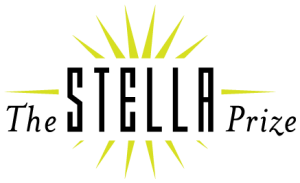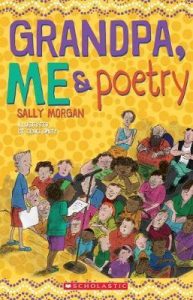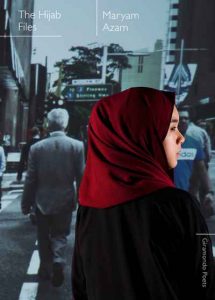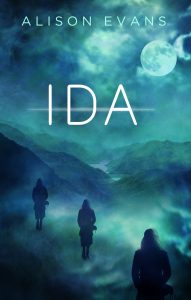 A woman artist, writes author Susan Johnson, ‘wants to make a work of art that is itself, and free. But she also has another job: it seems she must also prove how you devalue her work or overlook it or put it in a box marked “small” or “confessional” or “a woman’s book”.’ Without this burden of proof – which is demonstrated through annual counts by organisations such as The Stella Prize in Australia and Vida in America – we wouldn’t be able to highlight gender bias and its corrosive impact on art and writing by women. The Australian Women Writers Challenge is doing its bit by actively encouraging readers to redress gender bias by collecting stats and and by maintaining a database of your reviews, so pat yourselves on the back for being part of a movement to create change!
A woman artist, writes author Susan Johnson, ‘wants to make a work of art that is itself, and free. But she also has another job: it seems she must also prove how you devalue her work or overlook it or put it in a box marked “small” or “confessional” or “a woman’s book”.’ Without this burden of proof – which is demonstrated through annual counts by organisations such as The Stella Prize in Australia and Vida in America – we wouldn’t be able to highlight gender bias and its corrosive impact on art and writing by women. The Australian Women Writers Challenge is doing its bit by actively encouraging readers to redress gender bias by collecting stats and and by maintaining a database of your reviews, so pat yourselves on the back for being part of a movement to create change!
We’re also trying to highlight diversity in Australian literature, as this more accurately represents Australia’s population (ie we are not all white, middle-class, heterosexual and able-bodied). So if you come across a review that you think represents diverse characters, or if the author is of a minority group (which is not the greatest way of defining such authors, but is the best we can do at the moment), please do tag the ‘diversity’ box, and this will help us draw attention to these books.
 Below are a few highlights from the diversity reviews over the last two months.
Below are a few highlights from the diversity reviews over the last two months.
Ashleigh of The Book Muse reviewed Indigenous writer Sally Morgan’s book for children Grandpa, Me and Poetry. She describes it as ‘a story about a family, told from the perspective of the daughter and her love of poetry, and how she uses it to express herself at an uncertain time, with a nice resolution at the end of the story that brings a smile to the face of readers.’ It’s really great to see books for the young ‘uns featuring diversity.
 Jennifer of GoodReads penned her thoughts on Anita Heiss’s edited volume, Growing Up Aboriginal in Australia. With more than fifty contributions, Jennifer comments, it’s ‘obvious that there is no singular experience of growing up Aboriginal.’ She also found that ‘it’s clear from these accounts that elements of Australian society have a preconceived idea of what Aboriginal people should be. And if an Aboriginal person does not fit into that stereotype, then it is the person who is questioned, not the stereotype.’ She described the book as ‘both heartbreaking and inspiring’ and thinks that ‘all Australians should read it’. Meanwhile Michael of the Newton Review of Books draws attention to Heiss’s ‘moving and beautifully written introduction’ and how, in her role as editor, she has ‘again added to our understanding of the diversity of Aboriginal identity and the strong connection to land’. He enjoyed Evelyn Araluen’s ‘Finding Ways Home’, a ‘beautifully evocative’ piece, and Tony Birch’s ‘My Father’.
Jennifer of GoodReads penned her thoughts on Anita Heiss’s edited volume, Growing Up Aboriginal in Australia. With more than fifty contributions, Jennifer comments, it’s ‘obvious that there is no singular experience of growing up Aboriginal.’ She also found that ‘it’s clear from these accounts that elements of Australian society have a preconceived idea of what Aboriginal people should be. And if an Aboriginal person does not fit into that stereotype, then it is the person who is questioned, not the stereotype.’ She described the book as ‘both heartbreaking and inspiring’ and thinks that ‘all Australians should read it’. Meanwhile Michael of the Newton Review of Books draws attention to Heiss’s ‘moving and beautifully written introduction’ and how, in her role as editor, she has ‘again added to our understanding of the diversity of Aboriginal identity and the strong connection to land’. He enjoyed Evelyn Araluen’s ‘Finding Ways Home’, a ‘beautifully evocative’ piece, and Tony Birch’s ‘My Father’.
 From edited collections to poetry … Jon Shaw reviewed The Hijab Files by Maryam Azam, a collection of twenty-nine poems that ‘aren’t religious poems, but they are infused with a religious understanding of the world.’ Many of them, he continues, ‘focus on the hijab, and it’s hugely refreshing to hear a clear, nuanced, non-Orientalist voice on the subject, sometimes cheerfully practical (‘A Brief Guide to Hijab Fashion’, ‘Places I’ve Prayed’), sometimes satirical from an unexpected viewpoint (‘Modestique’), sometimes touching on friendly or hostile reactions from non-Muslims (‘The Hobbling Bogan’, ‘Praying at School’), sometimes addressing difficulties with other Muslims (‘Fashion Police’).’
From edited collections to poetry … Jon Shaw reviewed The Hijab Files by Maryam Azam, a collection of twenty-nine poems that ‘aren’t religious poems, but they are infused with a religious understanding of the world.’ Many of them, he continues, ‘focus on the hijab, and it’s hugely refreshing to hear a clear, nuanced, non-Orientalist voice on the subject, sometimes cheerfully practical (‘A Brief Guide to Hijab Fashion’, ‘Places I’ve Prayed’), sometimes satirical from an unexpected viewpoint (‘Modestique’), sometimes touching on friendly or hostile reactions from non-Muslims (‘The Hobbling Bogan’, ‘Praying at School’), sometimes addressing difficulties with other Muslims (‘Fashion Police’).’
 And from poetry to historical fiction … there were seven reviews of Kirsty Manning’s The Jade Lily, a novel which explores the generational effects of the persecution of Jewish people in World War Two. The Burgeoning Bookshelf sums it up as ‘an atmospheric tale of the atrocities of war and the stoic, strong women that endured it.’ Kim of the Newtown Review of Books describes how the author takes her readers ‘not only into the colourful streets of wartime Shanghai, but into the Jewish refugee experience of those streets. It’s a chapter in the Holocaust and wider World War II story that’s little written about and, in this sense, any author who attempts to bring the overlooked into the light, especially via commercial fiction, should be applauded for the effort and risk.’ Sometimes, however, she found that the ‘cultural complexity of the characters’ experiences are a little too sketchily drawn, and occasionally not quite convincing’. Theresa, meanwhile, found the novel illuminated the ‘extent of human suffering throughout WWII on a global scale. Stories like this are grounding, they reinforce the importance of humanity uniting and persevering in the pledge for peace.’
And from poetry to historical fiction … there were seven reviews of Kirsty Manning’s The Jade Lily, a novel which explores the generational effects of the persecution of Jewish people in World War Two. The Burgeoning Bookshelf sums it up as ‘an atmospheric tale of the atrocities of war and the stoic, strong women that endured it.’ Kim of the Newtown Review of Books describes how the author takes her readers ‘not only into the colourful streets of wartime Shanghai, but into the Jewish refugee experience of those streets. It’s a chapter in the Holocaust and wider World War II story that’s little written about and, in this sense, any author who attempts to bring the overlooked into the light, especially via commercial fiction, should be applauded for the effort and risk.’ Sometimes, however, she found that the ‘cultural complexity of the characters’ experiences are a little too sketchily drawn, and occasionally not quite convincing’. Theresa, meanwhile, found the novel illuminated the ‘extent of human suffering throughout WWII on a global scale. Stories like this are grounding, they reinforce the importance of humanity uniting and persevering in the pledge for peace.’
Second Chinese Daughter is also set in Asia, and follows a three-generational family in Malaya. Hazel of GoodReads describes it as ‘a well crafted and significant book of resourceful women who have lived through challenging times. Evocative of the historical periods, especially the Japanese occupation’. Like The Jade Lily and the iconic Wild Swans, it chronicles ‘lost opportunities due to political change and war impacting on Asian women and their families and the roles they were expected to fulfil’.
 While history can eke out overlooked voices from the past, speculative fiction is a great form for exploring other modes of being. Amie Kaufman’s Ice Wolves, reviewed by Cassandra, has a non-binary character, and the book ‘refers to them with a gender neutral pronoun without making a fuss.’ Elizabeth of The Skiffy and Fanty show also reviewed non-binary author Alison Evans’ debut novel Ida, which won the Victorian Premier’s People’s Choice Award and was shortlisted for this year’s Aurealis Awards. She describes it as ‘a book about vulnerable, queer teenagers’, and while she had some quibbles about elements of the book’s craft, she also admired other aspects of the work. ‘A sense of unease’, for example, ‘is effectively built through small details, such as stains on the wall reappearing or multiplying. Ida finds notes in her own handwriting that she doesn’t remember making, some written in a code she doesn’t understand. This escalates to bigger things, such as characters disappearing entirely from reality.’ It sounds intriguing! One to add to the toppling TBR pile.
While history can eke out overlooked voices from the past, speculative fiction is a great form for exploring other modes of being. Amie Kaufman’s Ice Wolves, reviewed by Cassandra, has a non-binary character, and the book ‘refers to them with a gender neutral pronoun without making a fuss.’ Elizabeth of The Skiffy and Fanty show also reviewed non-binary author Alison Evans’ debut novel Ida, which won the Victorian Premier’s People’s Choice Award and was shortlisted for this year’s Aurealis Awards. She describes it as ‘a book about vulnerable, queer teenagers’, and while she had some quibbles about elements of the book’s craft, she also admired other aspects of the work. ‘A sense of unease’, for example, ‘is effectively built through small details, such as stains on the wall reappearing or multiplying. Ida finds notes in her own handwriting that she doesn’t remember making, some written in a code she doesn’t understand. This escalates to bigger things, such as characters disappearing entirely from reality.’ It sounds intriguing! One to add to the toppling TBR pile.
Twenty-nine books tagged ‘diversity’ were reviewed over May and June. This compares to thirty-nine between April and May, and thirty-seven between January and February. Although these stats aren’t definitive, they do act as a rough guide. It may have been our Indian summer (or rather, climate change) that kept folk outdoors and away from their books, but it would be great to see these numbers perk up again as the cold begins to bite and we curl up in our doonas with a book.
Next month, from 8 – 15 July is NAIDOC week, and the theme is ‘Because of her, we can!’ It would be super to see more reviews of books by Indigenous women writers, particularly given this theme of Indigenous women role models. You can search for books via the database, or check out our list of Indigenous women writers under our Diversity tab. This also includes a link to Anita Heiss’s invaluable Black Book Challenge. You can also head to Lisa Hill’s blog at ANZ LitLovers, as she is running her annual Indigenous Literature Week for readers.
And I look forward to reading what you’ve read when I return for the July – August roundup!
About Me
 I’m Jessica White, a novelist and researcher, and I’ve been deaf since age 4 when I lost most of my hearing from meningitis. I have a PhD from the University of London and have published two novels with Penguin, A Curious Intimacy (2007) and Entitlement (2012). I’ve just completed a book of non-fiction about Rosa Praed and her deaf daughter Maud and am currently writing an ecobiography of 19th century botanist Georgiana Molloy. You can find more information about me at my website. I’m also on Twitter @ladyredjess.
I’m Jessica White, a novelist and researcher, and I’ve been deaf since age 4 when I lost most of my hearing from meningitis. I have a PhD from the University of London and have published two novels with Penguin, A Curious Intimacy (2007) and Entitlement (2012). I’ve just completed a book of non-fiction about Rosa Praed and her deaf daughter Maud and am currently writing an ecobiography of 19th century botanist Georgiana Molloy. You can find more information about me at my website. I’m also on Twitter @ladyredjess.






Thanks for your round-up Jess. I will of course be reading for Lisa’s ILW in July. But will be in Arnhem Land for that week where internet connections are pretty minimal.
Hi Sue,
Arnhem Land sound fabulous – would love to hear how it goes. And Lisa’s ILW might be the thing to get me reviewing again – just been so flat out!
Hi there! Thanks for including my review here. It’s such a great round-up. Lovely to see Amie Kaufman’s ICE WOLVES on here.
Just wanted to let you know the author of IDA is mistakenly listed as Isla instead of Alison (an easy mistake to make, given the title!)
Argh, thanks Elizabeth for pointing this out. I have amended it – I don’t know what I was thinking!